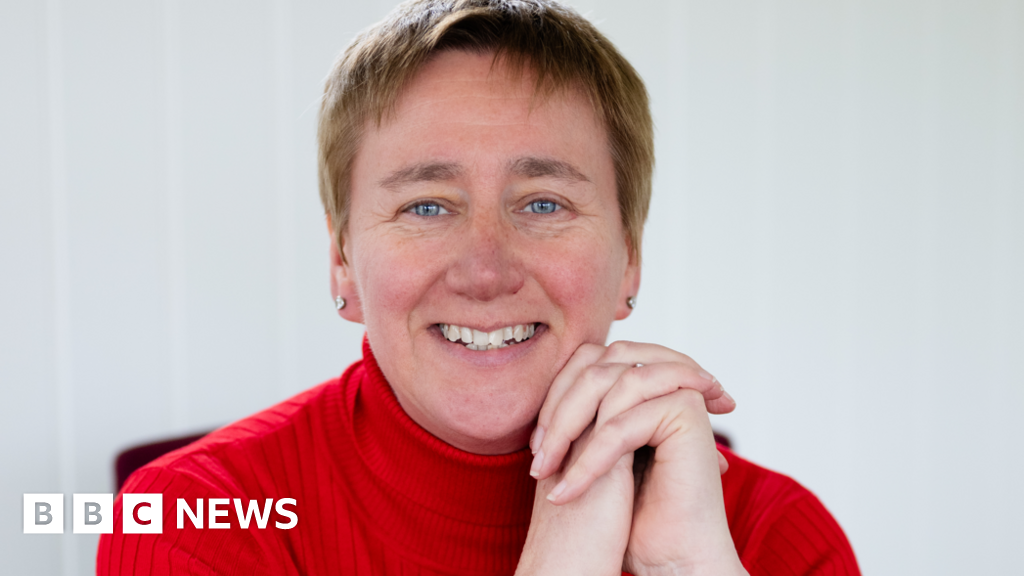


 Getty Images
Getty Images
There was a lot to chew on in the party manifestos on health and the NHS, with promises to cut waiting lists, modernise hospitals and create more GP and dentist appointments.
But plans around prevention were in short supply on these political menus - as were proposals about how to help us stay healthier.
With a developing obesity and diabetes crisis, as well as increasing numbers of children needing emergency treatment because of rotting teeth, some experts say keeping people out of hospital is just as important as caring for them once they get ill. A recent report from the Health Foundation think tank concluded that "the nation’s health is fraying, placing a growing burden on public services and limiting future prosperity. Much of this ill-health could be prevented."
Tackling sugar consumption would be a vital part of any drive to improve the population’s health, but the word "sugar" only appears twice in total in the manifestos of the five main parties in England. That's surprising given that policies to curb sugar consumption and regulate unhealthy food products have been debated very publicly for nearly a decade.
In 2015, chef Jamie Oliver started his own campaign for a sugar tax, after filming a six-year-old-boy having rotten teeth pulled out under general anaesthetic for a TV documentary.
The government did introduce a tax on high-sugar soft drinks in 2018. Manufacturers anxious to avoid paying it cut sugar levels in their products so that they fell below the levy threshold. The Institute for Government reported that total sugar sold in soft drinks fell by more than 35% between 2015 and 2019.
Attention then turned to sugary foods. Public Health England (which has since been abolished) started publishing league tables of the sugar content of items like biscuits, cakes and cereals. There was a veiled threat by officials and some ministers of a levy.
In his final weeks in office in 2016, then-Prime Minister David Cameron was close to unveiling plans to ban "buy one get one free" deals for unhealthy products in supermarkets and restrict TV ads for junk food and other high-sugar products.

 Getty Images
Getty Images
Jamie Oliver gave evidence to MPs in 2015 as part of his campaign to tackle obesity
But like unwanted leftovers on a plate, those plans were cast aside by his successors at 10 Downing Street. Theresa May and Boris Johnson were unimpressed by the menu of anti-obesity policies and sceptical about the state intervening in public health. The government, it was argued, should not interfere in people's decisions about what to eat and drink.
The pandemic complicated these debates as ministers and officials focused solely on tackling Covid-19. And when soaring food price inflation took a toll on households, politicians argued that adding a tax on sugary foods would not be fair.
The result of all this? Restrictions on where unhealthy products can be promoted in supermarkets have been introduced in England. But other policies discussed on and off for a decade have been postponed until October 2025. The ban on advertising these items on broadcast outlets before 21:00 and at any time online will not start until then. There will also be a ban on "buy one get one free" promotions.
The delay was announced in June 2023 by Prime Minister Rishi Sunak, who explained his thinking: "At a time when household budgets are under continuing pressure from the global rise in food prices it is not fair for government to restrict the options available to consumers on their weekly shop."
Rising fast
In England the proportion of adults classified as overweight or obese increased from 61.2% in 2015-16, to 63.8% in 2021-22, according to government data.
Opponents of the sugar tax on drinks may point to those figures to argue that it didn't have enough impact. Supporters will say the numbers would have been worse if the levy had not been imposed. A study last year published in PLOS Medicine concluded that it was "associated with decreased prevalence of obesity in year six girls, with the greatest differences in those living in the most deprived areas".
Internationally, the statistics make for depressing reading. A report in The Lancet in February stated that, based on 2022 data, more than one billion people globally were living with obesity. The UK, with 27% of men reported to be obese, fared worse than Germany (23%), Spain (19%), Italy (18%), and France (10%).
The financial pressures are obvious. The costs associated with diabetes care are rising fast. University of York research concludes that diabetes cost the UK nearly £14bn in 2021-22 – with more than £10bn for the NHS. Demand for weight-loss drugs for diabetics such as Wegovy is expected to rise sharply.
The stats are clear, but what is the reality for patients? Professor Kamila Hawthorne is president of the Royal College of GPs. A few years ago she moved to a practice in a deprived area of South Wales where she sees many overweight and obese patients. They are more likely to develop back and knee pain and so need time off work, she says. They are also at higher risk of developing diabetes, cancer or high blood pressure. GPs can encourage people to move to healthier diets, Prof Hawthorne adds, but there is only so much they can do.
With many of her patients holding down several jobs while raising kids "they just don’t have time and so go for takeaways", she says. "They know what the problem is and they have tried to lose weight but they often feel helpless".
Dr Jack Jacobs, a GP who practices near Ashford in Kent, says diabetic and pre-diabetic numbers have increased by about 50% over five years and mainly in younger adults. He says local GP surgeries have employed a health coach to promote activity such as Couch to 5k but "there seems to be a lack of effort on education around diet and lifestyle - its astonishing that some teenagers and young adults just don’t seem to understand what exercise is".
The British Medical Journal has reported that one in six integrated care boards, responsible for managing health services in their region, have stopped taking on patients for specialist weight management services. Patient numbers were said to have spiralled out of control with demand far exceeding capacity. An academic expert told the BMJ that where services do exist they are often over-subscribed and at risk of budget cuts.
Some other experts are saying that only a cross-government approach will be adequate to tackle the problems. Professor Jonathan Pearson-Stuttard, Head of health analytics at the consultancy firm LCP, says it must be a priority for all Whitehall departments: “The links between ill-health and poor economic outcomes are increasingly clear. Preventing the onset of illness is key to managing the complex demand for healthcare as well as underpinning health-driven prosperity.”
Bold ambitions
So why have political leaders not done more? Clearly some have been concerned about accusations of a “nanny state” if restrictions are imposed. Business leaders also tend to push back when new taxes on food are proposed.
The Food and Drink Federation says these taxes will not drive “reformulation”. This is industry-speak for creating new recipes with fewer unhealthy ingredients while attempting not to lose customers.
It adds: "Food and drink manufacturers have been voluntarily lowering fat, salt and sugars in recipes for decades as well as reducing portion size, but it takes time to change much-loved products." It also argues that bans on advertising and promotions "would limit the ways in which companies can let families know about exciting new options".
Governments in Scotland, Wales and Northern Ireland have developed their own obesity strategies. All four UK nations have tended to defend existing policies and point to bold ambitions for intervention. But as the debate around the sustainability of the NHS intensifies, a broader discussion about health will be required - and that has not been forthcoming in this campaign.
The snag is that devising joined-up policies across different departments will take time and does not make for snappy manifesto headlines.
But as Amanda Pritchard, the head of NHS England, said in a recent speech: "Will we tackle problems at source, or do we accept the NHS becomes an expensive safety net?"
BBC InDepth is the new home on the website and app for the best analysis and expertise from our top journalists. Under a distinctive new brand, we’ll bring you fresh perspectives that challenge assumptions, and deep reporting on the biggest issues to help you make sense of a complex world. And we’ll be showcasing thought-provoking content from across BBC Sounds and iPlayer too. We’re starting small but thinking big, and we want to know what you think - you can send us your feedback by clicking on the button below.
 (1).png)
 5 months ago
23
5 months ago
23













